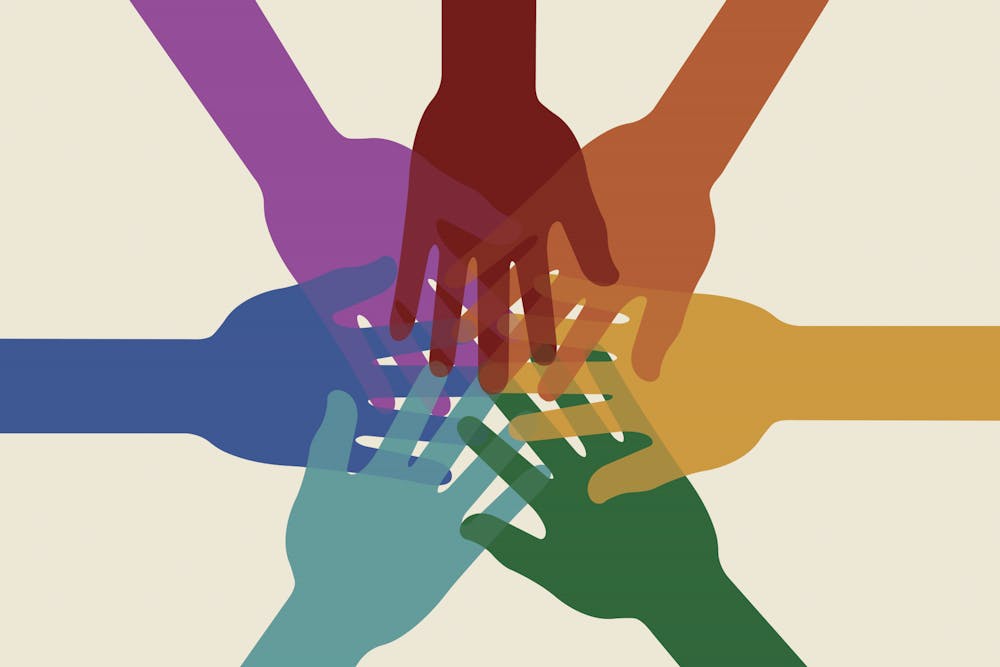Students need to learn how to factor intersectionality into their life and be good allies to the LGBTQIA+ community.
The term intersectionality was coined by Kimberlé Crenshaw, a lawyer and leading advocate for critical race theory. It states that everyone will have a different life experience because of their separate identities or "intersections," like race, gender, sexual orientation, gender identity, class, culture and ability, to name a few.
It started with a Black woman not getting a job because of her race and gender. While the company had both women and Black people, the women were white and the men were Black.
While intersectionality is important for everyone and good to think about in terms of the LBGTQIA+ community, we should remember the term was created by Black women for Black women.
"Intersectionality was coined for Black women," Shay Malone, USC's director of multicultural student affairs, said. "It was about when you think about how women are marginalized in the world, you think about how worse it is for a Black woman."
Everyone is different. The way you look and your identity has a major effect on how life will treat you. To think about intersectionality and understand that all of our intersections work together is important.
"What intersectionality does is to help us think our way through how those categories operate together," said Stephanie Mitchem, the interim chair of the women and gender studies department and a professor in the religious studies department. "We're not one thing at one time of the day and then one thing at another time of the day, even though we find ways to bring forward one part at a different time."

Something else that has come out of the term intersectionality is an intersectional feminist. You can't be a feminist without thinking about intersectionality.
For a long time in the feminist movement, anyone who wasn't a white, heterosexual, cisgender, middle-class, non-disabled woman was shut out. This especially can be seen in the suffrage movement.
Feminism is about fighting for equality. We aren't an equal society unless everyone is seen as equal and treated as so.
One way of fighting is to be an ally if you aren't BIPOC, which stands for black, indigenous people of color, or don't identify as part of the LGBTQIA+ community. You can be an ally by being there and supporting these groups.
"I've had a lot of friends who have either been closeted or not supported by their families," Julie Turner, a member of Free Mom Hugs, said. "There's too much of that. I would say it's more important than ever for people to step up wherever they are and support the LGBTQ community."
Being an ally isn't just saying you're an ally. It's about action. Whether that's helping someone in need or going to a protest, allyship is a verb, Malone said, not a noun.
"Being an ally means advocating and supporting marginalized identities," Malone said.
There are many ways to be advocates for the LBGTQIA+ community and take some action. From speaking up in conversations with friends and family to going out to the world and fighting for the rights of others. It's important to bring allyship into every part of your life.
Conversations with people who look different from you or have lived drastically different lives are very important to understand the world and people in a different life.
Understanding the importance of intersectionality and applying it to your life is important in being an ally to the LBGTQIA+ community and other marginalized groups.
Correction (Oct. 4 at 11:26 p.m.): A previous version of this story incorrectly defined BIPOC. BIPOC stands for Black, Indigenous People of Color. The story has been updated to reflect this.

